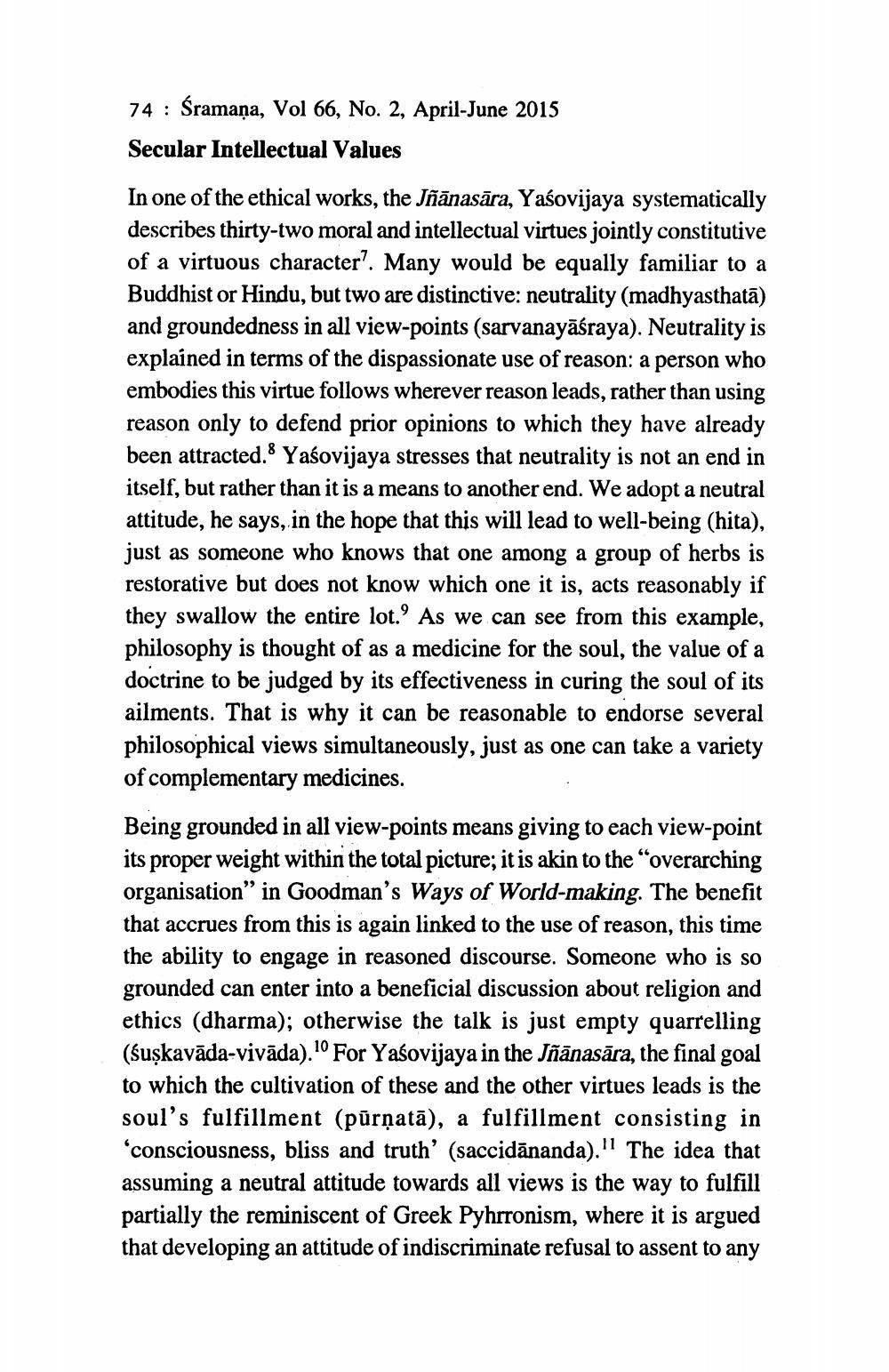________________
74 : Śramaņa, Vol 66, No. 2, April-June 2015 Secular Intellectual Values
In one of the ethical works, the Jñānasāra, Yaśovijaya systematically describes thirty-two moral and intellectual virtues jointly constitutive of a virtuous character?. Many would be equally familiar to a Buddhist or Hindu, but two are distinctive: neutrality (madhyasthatā) and groundedness in all view-points (sarvanayāśraya). Neutrality is explained in terms of the dispassionate use of reason: a person who embodies this virtue follows wherever reason leads, rather than using reason only to defend prior opinions to which they have already been attracted. Yaśovijaya stresses that neutrality is not an end in itself, but rather than it is a means to another end. We adopt a neutral attitude, he says, in the hope that this will lead to well-being (hita), just as someone who knows that one among a group of herbs is restorative but does not know which one it is, acts reasonably if they swallow the entire lot. As we can see from this example, philosophy is thought of as a medicine for the soul, the value of a doctrine to be judged by its effectiveness in curing the soul of its ailments. That is why it can be reasonable to endorse several philosophical views simultaneously, just as one can take a variety of complementary medicines. Being grounded in all view-points means giving to each view-point its proper weight within the total picture; it is akin to the "overarching organisation" in Goodman's Ways of World-making. The benefit that accrues from this is again linked to the use of reason, this time the ability to engage in reasoned discourse. Someone who is so grounded can enter into a beneficial discussion about religion and ethics (dharma); otherwise the talk is just empty quarrelling (suskavāda-vivāda)." For Yaśovijaya in the Jñānasāra, the final goal to which the cultivation of these and the other virtues leads is the soul's fulfillment (pūrņatā), a fulfillment consisting in 'consciousness, bliss and truth' (saccidānanda)." The idea that assuming a neutral attitude towards all views is the way to fulfill partially the reminiscent of Greek Pyhrronism, where it is argued that developing an attitude of indiscriminate refusal to assent to any




